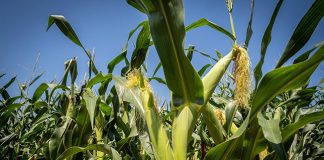
Photo: Juan Carlos Huayllapuma/CIFOR
A combination of production challenges has resulted in vegetable oil prices, such as palm and soya bean oil, reaching multi-year highs since 2020.
Although these prices may be nearing their peak, they are not expected to decline to previous levels, due to low stock levels, a slow recovery in production output, and higher usage of these oils for global biofuel production.
This was according to industry analysts speaking at the recent virtual Palm and Lauric Oils Price Outlook Conference.
According to the analysts, the constrained recovery in palm oil production due to ongoing labour shortage in Malaysia, and a downturn in soya bean oil output in China as result of a slowdown in demand for soya meal, was expected to prevent prices falling too steeply.
“We are in a bubble, and the bubble will pop, but I don’t expect prices to collapse” said James Fry, chairperson of commodity consultancy, LMC International.
“For 2021, my [production] estimate has been trimmed from 20 million tons to 19,6 million tons for Malaysia, and from 49 million to 48 million tons for Indonesia,” Dorab Mistry, director of Indian consumer goods company, Godrej International, told delegates.
Global palm oil supply was expected to increase by three million tons in 2021 after declining by 25 million tons last year, Mistry added.
Although higher palm oil prices have had a subdued effect on demand of the oil for food preparation in price-sensitive markets such as India, US President Joe Biden’s new biodiesel agenda was expected to stimulate demand from the fuel sector, the analysts said.
Thomas Mielke, head of Germany-based analyst firm, Oil World, said he estimated that biodiesel production would increase by 2,2 million tons this year, with 17,9 million tons of palm oil expected to be used in biodiesel production and hydrotreated vegetable oil (HVO).
The United Nations’ vegetable oils price index increased 70% since June 2020 to a nine-year high, following the labour shortages in palm plantations in Asia, as well as unfavourable weather conditions in key sunflower, rapeseed and soya bean production regions, inhibiting edible oil output and reduced supplies to 10-year lows.
The increasing prices of edible oils supported a rise in the UN’s broader food price index to its highest since 2014, negatively affecting consumers in developing countries and providing a problem for policymakers trying to encourage economic growth.
Strong recovery in demand for edible oil as a result of consumers and businesses restocking following global COVID-19 lockdowns exacerbated the situation, as was Biden’s promised ‘clean energy revolution’ that looked set to strongly encourage biofuel demand, Reuters reported.













